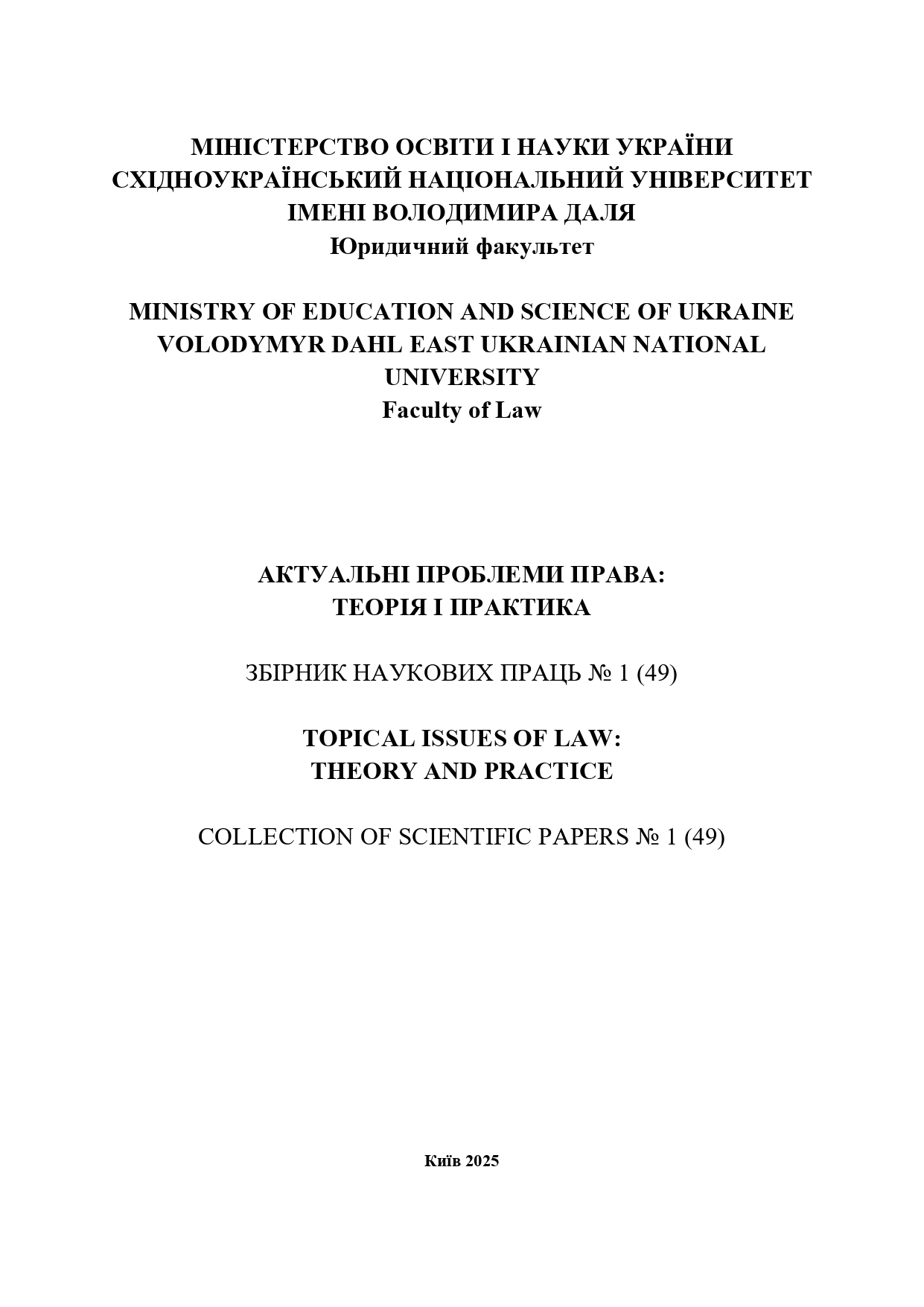SPECIFICS OF LEGAL REGULATION OF DIGITAL HUMAN RIGHTS
DOI:
https://doi.org/10.33216/2218-5461/2025-49-1-261-272Abstract
The study examines the interpretation of human
rights and freedoms in the context of globalization
changes. The author identifies the main
characteristics of the human dimension of
globalization, as well as the factors that shape the
content of the rights and freedoms of both individuals
and nations. Particular attention is paid to the
analysis of human rights standards in the field of new
information technologies.
The analysis of digital human rights in the
modern context requires a comprehensive and
integrated approach that covers both national
realities and European experience. Domestic scholars
emphasize the importance of this topic and the need
for further research. In the age of rapid technological
progress, digital rights have become an integral part
of public life, radically changing the forms of
communication and interaction. Ukraine, like other
countries, faces numerous challenges in this area
caused by the development of information and
communication technologies. In this context, firstly,
awareness of the essence of digital rights and their
importance is necessary for every citizen, especially in
terms of protecting personal information and the right
to privacy; secondly, the formation of national policy
in this area should be based on the best practices of
European countries and international legal norms.
The priority steps are to modernize legislation,
educate the public, and strengthen the cybersecurity
system; third, effective protection of digital rights is
only possible through close cooperation between
government agencies, civil society, business, and
academic institutions. Only by combining the efforts
of all stakeholders can reliable and effective
mechanisms for the realization of digital rights in
Ukraine be ensured.
The main risks and challenges to the realization
of digital human rights are identified. The analysis
outlines potential ways to mitigate existing risks and
threats, and considers tools for controlling the
circulation of personal data on the Internet at the level
of legislation and relevant institutions. In today's
information society, the right to privacy is of
particular importance, as digital rights should be
guaranteed to the same extent as rights in the traditional offline environment. Effective protection of privacy in the online space involves the introduction of comprehensive legal regulation and the establishment of a specialized institution that will monitor and control the security of personal data.
Keywords: human rights, digital rights, digitalization, right to be forgotten, right to privacy.

